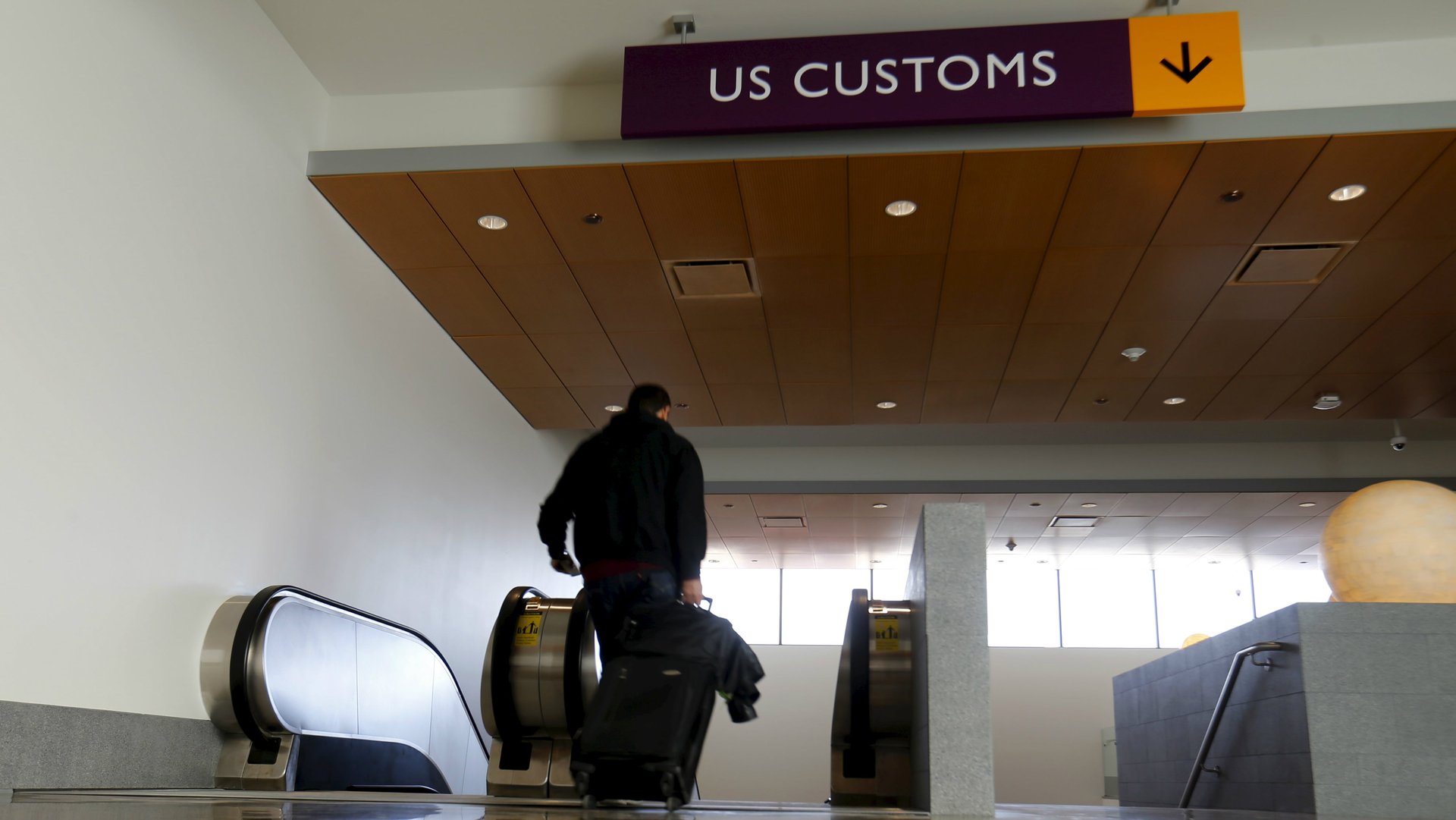As travelers are stopped at airports, companies are scrambling to respond to Trump’s immigration order
Within hours of US president Donald Trump issuing an executive order barring refugees from war-torn Syria indefinitely, suspending entry of refugees from other countries for 120 days, and temporarily banning visitors from six other majority-Muslim nations, there are already reports of chaos and outrage as travelers with valid visas are being turned away from entering the country.


Within hours of US president Donald Trump issuing an executive order barring refugees from war-torn Syria indefinitely, suspending entry of refugees from other countries for 120 days, and temporarily banning visitors from six other majority-Muslim nations, there are already reports of chaos and outrage as travelers with valid visas are being turned away from entering the country.
In addition to Syria, Trump banned visitors from Iraq, Iran, Sudan, Libya, Somalia, and Yemen, due to concerns about terrorism. The American Civil Liberties Union and immigration lawyers today sued in federal court for the release of two Iraqi men—one a former US government employee—who were detained at New York’s John F. Kennedy International Airport despite having valid visas to enter the country, Reuters reported. Separately, five Iraqi migrants and one Yemeni weren’t allowed to board an EgyptAir flight from Cairo to New York today even though they held valid visas, Reuters said. The Department of Homeland Security did not immediately respond to a request for comment, but a spokeswoman told Reuters that the ban also applies to green card holders from the listed countries.
The order will likely be a costly headache for airlines, who are under pressure to quickly comply with the new rules. Airlines can deny passengers boarding if they lack proper travel documentation or return tickets. And failing to do so carries a risk for airlines: If immigration authorities at the final destination refuse passengers entry, airlines can be stuck with the cost of having to fly the passenger back.
Etihad, Emirates, and Turkish airlines were instructing travel agencies not to sell Iranians tickets to the US, even if they hold US visas, and were not allowing Iranians to board US-bound flights, according to AFP.
Bloomberg reported that the Middle Eastern countries that are excluded from the list, such as Saudi Arabia and the United Arab Emirates, are places where Trump himself holds business interests. Also, 15 of the 19 hijackers in the Sept. 11, 2001 were Saudi nationals, while the rest were from Egypt, Lebanon, and the United Arab Emirates.
Trump’s measure has worried technology giants that employ foreign professionals. An internal memo from Google Chief Executive Sundar Pichai cited by the Wall Street Journal (paywall) indicates that the ban on foreign nationals from seven countries affects at least 187 Google employees.
“We’re concerned about the impact of this order and any proposals that could impose restrictions on Googlers and their families, or that could create barriers to bringing great talent to the US,” a spokeswoman for Google told Quartz in an email. “We’ll continue to make our views on these issues known to leaders in Washington and elsewhere.”
In a filing this week, Microsoft said: “The market for highly skilled workers and leaders in our industry is extremely competitive. We are limited in our ability to recruit internationally by restrictive domestic immigration laws. Changes to U.S. immigration policies that restrain the flow of technical and professional talent may inhibit our ability to adequately staff our research and development efforts. If we are less successful in our recruiting efforts, or if we cannot retain key employees, our ability to develop and deliver successful products and services may be adversely affected.”
Facebook’s chief executive, Mark Zuckerberg, criticized Trump’s order, saying, “We are a nation of immigrants, and we all benefit when the best and brightest from around the world can live, work and contribute here. I hope we find the courage and compassion to bring people together and make this world a better place for everyone.”